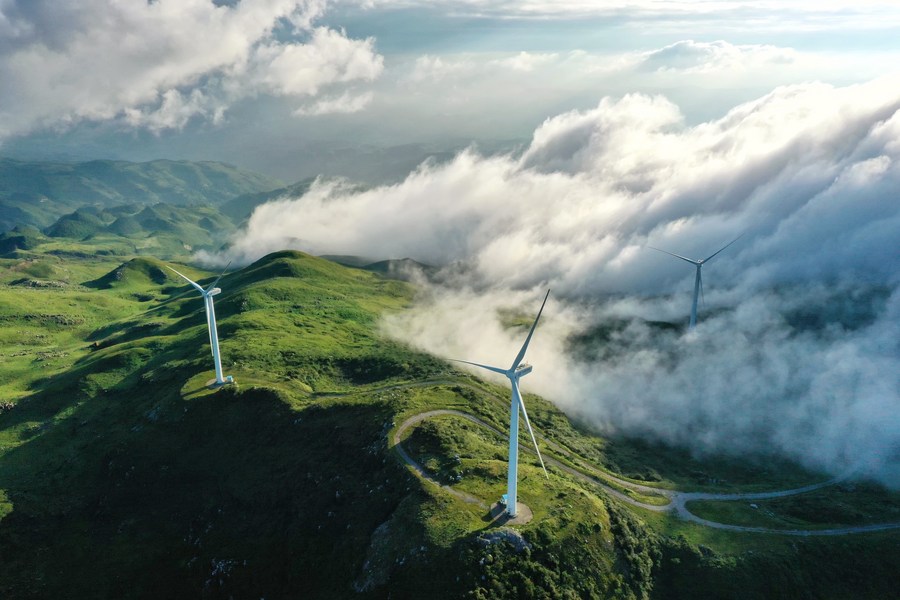China's pledge to peak carbon emissions before 2030 and achieve carbon neutrality by 2060 could be "challenging," but "challenging" is not the same as "impossible," wrote Angel Hsu, a climate scientist and an assistant professor of public policy and the environment at the University of North Carolina-Chapel Hill.
In her guest essay entitled "Don't be so quick to doubt China's climate change dedication" published in the New York Times on Monday, the American scholar pointed out that China's "new" climate pledge at the United Nations COP26 climate summit in Glasgow should not be viewed as proof which critics can jump on to question China's climate credibility.

The author went on to suggest that a more considered approach should be adopted in judging China's actions in a climate crisis where every country should be held to account.
Having studied Beijing's environmental and climate policy for nearly two decades, the American scholar pointed out that China has met or has come close to meeting every major energy and environmental target it has set during the past years and it is emerging as a responsible player doing its part to mitigate climate crisis.
The world's second largest economy has "reduced its coal reliance from over 70 percent in 2009 to around 57 percent in 2020" and continues to wean itself off fossil fuels, said the climate expert. Data also shows China is on a path to exceed its 2030 carbon intensity reduction goals and the country has ratified and adopted its international commitments into law.

China is on a path to exceed its 2030 carbon intensity reduction goals. (Photo: Xinhua)
Hsu highlighted Beijing's role in tackling its climate emissions while ensuring the well-being of its people amid the energy shortage that has affected some parts of China. Beijing cited the shortage as reason to speed up its transition to a green economy to better weather spikes in energy demand and achieve energy security, said the expert.
The climate scientist noted that a safe and just energy transition is being brought forth by China. Government orders have been put in place to call for ramping up renewable energy investments and to "contain" the development of projects associated with both high energy consumption and high emissions, which should be interpreted as an evidence of the country's "very real and ongoing commitment," the essay said.
The way China handled the shortage "should not be taken as an indication that they are reneging on their climate commitments," according to Hsu. "It demonstrates the enormous challenges that China faces in going green and Beijing's blueprint for moving forward."
Beijing's shift away from a fossil fuel economy could be likened to turning a giant ship: It must overcome significant inertia before generating sufficient momentum in the other direction.
"It's important to give the ship time to turn," said Hsu.


